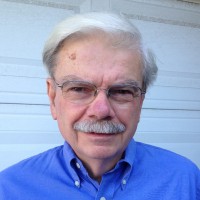Art Buchwald, where are you when we need you?
During Watergate, you were Richard Nixon’s nemesis. But he offered great material for your column. “I worship the very quicksand he walks on,” you said.
For more than half a century, “Artie,” as he was called by his closest friends, was the best humor writer at the Washington Post. Some would say he was one of the best anywhere, to this day.
What would he think of Donald Trump and writing a column now? He would be outraged – and he would love it.
Trump would offer an elephantine target for satire in the column that Buchwald syndicated to 550 newspapers at its peak, including about 100 abroad. He began writing the column in 1949, and by the time he died in 2007, he had written thousands, often turning out three a week.
He smoked cigars, six to eight a day, frequently Don Diegos. “My pacifiers,” he said, loudly, with a faintly high pitch.
–––
He published more than 30 books, including collections of the columns. He wrote memoirs, a Broadway play and two novels. One became a Yul Brynner movie; the other was adapted for television. He had a radio broadcast and a slot on the TV show 60 Minutes, and he lectured across the country.
He contributed stories for comic strips in Crazy Magazine, and he made cameo appearances in movies, including Alfred Hitchcock’s “To Catch a Thief” and the TV series “Mannix.”
He won the Pulitzer Prize and was elected to the American Academy of Arts and Letters.
Always and everywhere, Art Buchwald delighted in firing what Michael Hill, in a biography published this year, calls “Buchshots.” He aimed them at important people, especially the self-important.
–––
Buchwald said it was fortunate that Nixon had opponents when he ran for president. Otherwise, he “would have had to run against himself, and that would have been one of the dirtiest campaigns in American history.”
When Nixon tried to refashion his image into a kinder, gentler person, Buchwald wrote about a conversation between the Old Nixon and the New Nixon. “Everyone thinks,” the New Nixon said, “that I am the cheap, petty, scheming rotter that they always thought you were.”
As the president began spending more and more time at home in San Clemente, Buchwald quoted a spokesman: “With communications the way they are these days, it’s just as easy for him to handle the nation’s business from Washington. Besides, if anything important happens, the president can always fly back to San Clemente.”
During protests against the Vietnam War, the Communist Party newspaper, Pravda, said Buchwald wrote his humor at the direction of Nixon’s government as a “safety valve” to reduce the impact of dissent. “True – I’m an agent of the C.I.A,” he replied. “Every third word in my columns is part of a coded message to one of my fellow agents in Moscow.”
Even before Watergate, Buchwald suggested silencing the audio when Nixon appeared on television and watching his body language to know what he was not saying.
At the height of the scandal, Buchwald suggested creating a national holiday so “you could have Watergate Day sales . . . with giant savings on burglar tools, shredding machines and lie detectors.”
He brought TV detective Lt. Columbo to the White House (“Sure is a nice house you got here. How much does a place like this cost?”) Columbo, as one writer put it, “soon uncovered more plots than a grave digger at Forest Lawn.”
The president was not amused.
–––
Buchwald spared no one. Nixon, he said, “looks like the man you wouldn’t buy a used car from.” Hubert Humphrey “looks like the guy who bought it from him.” George Wallace “looks like the guy who wants to steal it.”
He was never shy about giving presidents unsought advice. To them all, he suggested: If laughter is such good medicine, why not have Medicare or Medicaid pay for it?
To Ronald Reagan, who was worried about creeping communism, he advised keeping a close eye on Bedford-Stuyvesant. “If Bedford-Stuyvesant goes communist, East Hampton will be next.”
To Jimmy Carter, he cautioned against diplomatic recognition for Communist China. “There should be a third China set up somewhere – maybe in Liechtenstein or Switzerland. . . . This would be Neutralist China, and this would be the one everybody would recognize. In this way, we wouldn’t have to hurt anybody’s feelings by choosing between Communist China and Nationalist China.”
But his most interesting advice was to Lyndon Johnson: Buchwald saw a Pentagon estimate that it cost $332,000 to kill one Viet Cong soldier, biographer Hill writes.
Instead of bombs, Buchwald suggested dropping American cars that were under recall. When the North Vietnamese took to the roads, they “would proceed to kill each other” by the score. Or pilots could drop pamphlets offering defectors free homes, education for their children, color TVs and memberships to country clubs. It would be cheaper than killing them.
With that, the National Security Agency began spying on him. Hill quotes researchers at the National Security Archive in Washington as saying, “Perhaps some humorless FBI or White House official” put him on a watch list.
–––
For Buchwald, life was not always funny.
He had a miserable childhood. Shortly after he was born, his mother was hospitalized with depression. She was institutionalized for 35 years. He never saw her. His father went broke and sent him and his three sisters to foster homes and an orphanage. When he was six or seven, Buchwald said in one of his memoirs, he realized that he could cope with his loneliness and confusion by being a clown.
“I did discover early in life I could make people laugh. That’s what changed my life, because as long as I could make them laugh, I could get a lot of love.” Most of all, he could get laughs by making fun of the people in charge. And so began his career as a court jester who said the emperor had no clothes.
He ran away, joined the Marines, then attended USC on the GI bill. He wrote a column for the Daily Trojan and became managing editor of Wampus, the campus humor magazine. Because he had not finished high school, USC denied him a diploma. Thirty-three years later, it awarded him an honorary doctorate.
In 1949, he went to Paris and took a sample column to the European edition of the New York Herald Tribune. He was hired. The Tribune syndicated his column internationally. In one, he attempted to explain Thanksgiving to the French. He used translations. Myles Standish became “Kilometres Deboutish.”
He married and adopted three children from orphanages and child-welfare agencies in France, Spain and Ireland.
–––
In 1963, with the United States in thrall to the Kennedys, Buchwald and his family moved to Washington. He went to work for the Post and focused on politics. It was lush with targets. His column grew ever more popular, and he made friends. They included Edward Bennett Williams, Ethel Kennedy and Ben Bradlee. He played poker on Martha’s Vineyard with David Brinkley, Jack Valenti and Carl Rowan.
He battled depression. He was hospitalized in 1963 for clinical depression and in 1987 for manic depression. He nearly killed himself, he said. A third episode, he joked, and he would win a place in “the Bipolar Hall of Fame.” He, William Styron and Mike Wallace suffered together. They called themselves “the Blues Brothers.”
“I traveled a lot on 60 Minutes,” Wallace told The New York Times, “and no matter where I was, every single night I got a call from Art Buchwald. . . . He did his best to make life palatable, to help you be optimistic, to let you know he believed you would beat it.”
In 2000, he suffered a stroke. Because of poor circulation caused by diabetes, doctors amputated a leg below the knee. His kidneys failed. Doctors said he was too unhealthy for a transplant. He refused a lifetime of dialysis, and the doctors said he would die within weeks. He entered a hospice. Inexplicably, his kidneys began to work, and his room became a salon. Walter Cronkite, John Glenn, Carly Simon . . .
“Some of them have such a good time,” he said, “they come back again and again. . . .
“I’m known as The Man Who Wouldn’t Die.”
He resumed his column, and after five months, he checked out of hospice. He wrote his last memoir, Too Soon to Say Goodbye. His kidneys failed again, and he died on Jan. 17, 2007. He was 81.
What would he have thought of Donald Trump and writing about Washington today?
He once told New York Times columnist Russell Baker: “You just write what happened in Washington yesterday, and the whole country will die laughing.”
But these days there is very little to laugh about.
The economy is struggling against inflation. Agencies are struggling against COVID. Joe Biden is struggling in the polls. Trump is defending a deadly, armed insurrection against democracy.
Art Buchwald, we need you to help us find some laughs.
He would be willing to try. Before he died, Mike Wallace asked him what he wanted to leave behind.
“He said, ‘Joy!’
“He almost shouted it.”




















